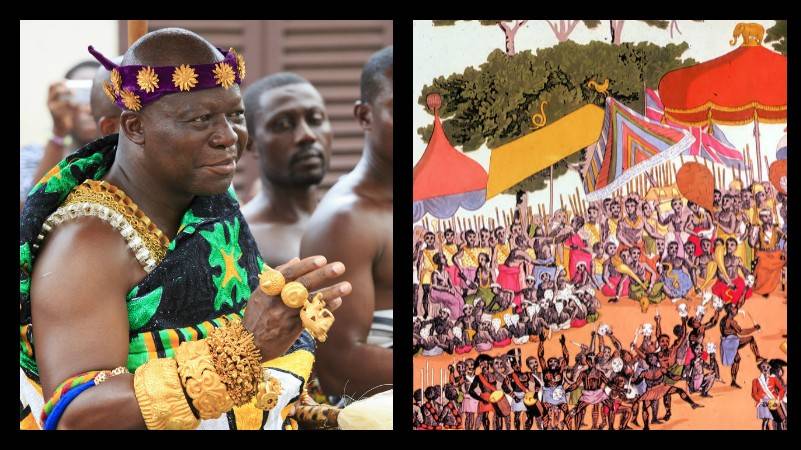The Asante Kingdom, led by successive Asantehene (Asante Kings), has a rich history. It was established in the 18th century by King Osei Tutu, with the crucial support of his fetish priest, Okomfo Anokye. Okomfo Anokye played a pivotal role in unifying the Asante states by fostering allegiance to the Golden Stool, a sacred symbol believed to have descended miraculously from heaven.
To commemorate the founding, Okomfo Anokye planted two trees in the forest and prophesied that one would flourish and become the capital, known as Kumasi, while the other would wither, leading to the creation of Kumawu. This legend underlines the spiritual and cultural origins of the Asante Kingdom.
Despite being initially situated in the forest, the Asante Kingdom expanded its dominion through military prowess and political acumen. It extended its influence southward to the European-occupied coastal castles and northward into the dry savannah lands, resulting in conflicts with the British.
In 1873, Kumasi was captured by the British Army, leading to the loss of significant Asante gold regalia now displayed in the British Museum. Following a final uprising in 1901, Asante came under British protection and became part of the Gold Coast colony.
In 1957, after a period of internal self-government, the Gold Coast achieved independence, becoming the first African colony to do so under the leadership of Kwame Nkrumah.
The name "Kumasi" has an interesting origin tied to the planting of "KUM" trees. Okomfo Anokye planted three trees at different locations, with one flourishing in Kwaaman, which became known as Kum-ase (meaning under Kum). Another tree in Oboani was small, leading to the village being named Kuma (meaning small Kum). The tree at Apemso-Bankofo did not grow, and as it withered, the village became Kum-awu, later changing to Kumawu. This narrative adds a cultural dimension to the naming of places within the Asante Kingdom.




No comments yet
Be the first to share your thoughts!